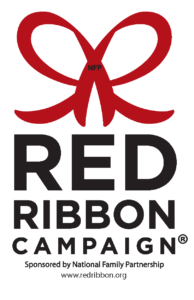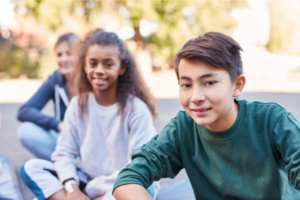 Red Ribbon Week is the nation’s oldest and largest drug prevention awareness campaign. Schools and community organizations around the country recognize this event each year during the week of October 23rd thru 31st.
Red Ribbon Week is the nation’s oldest and largest drug prevention awareness campaign. Schools and community organizations around the country recognize this event each year during the week of October 23rd thru 31st.
The observation is tied to the death of Enrique (Kiki) Camarena, a former United States (U.S.) Marine who immigrated to the U.S. as a child and died while working for the U.S. Government. In honor of his memory, friends and neighbors in his hometown wore red badges of satin. Over time, individuals concerned about substance use in their communities embraced Kiki’s belief that “one person can make a difference” and adopted the symbol of the red ribbon. Today, thousands of schools and prevention coalitions across the country use Red Ribbon Week as a catalyst to engage youth in conversations about the importance of making positive life choices.
The campaign and its associated community activities raise public awareness about substance use and misuse and help parents and schools have conversations with youth about alcohol and other drug use. Law enforcement personnel are also partners in community-based prevention strategies. Positive interactions with first responders can help to provide multiple protective factors against risk behaviors for youth, including: community engagement, decreased access to drugs and alcohol, cultural norms that set high expectations for youth, and social networks and support systems with schools and communities.
Each year, redribbon.org presents a competition for the annual Red Ribbon Week theme. This year’s theme is “Celebrate Life, Live Drug Free.”, created by seventh graders Emily King, Chelsea Abbott, and Celise Wicker from Wayland-Cohocton Middle School in Wayland, NY.
So what should you focus on when the young person you care for returns home from school and asks about Red Ribbon Week?
 Have an honest and age-appropriate conversation about the risks of using substances. Let them know they should never take any substance that was not prescribed to them by a healthcare professional.
Have an honest and age-appropriate conversation about the risks of using substances. Let them know they should never take any substance that was not prescribed to them by a healthcare professional.- Discuss the impact that substance use can have on the developing brain. Educate them about how our brains are still growing pathways learning how to connect and that the chemicals in substances can disrupt those connections or cause them to grow in an unhealthy way.
- Talk about your expectations for them regarding substance use. Explain fair and consistent consequences around behavior and practice refusal skills.
- Make a plan together. Make sure they know they can safely contact you if they end up in a situation where they need help.
- Stay open by listening to their questions and what they have to say. Talking with a child early and often about substance use has great influence and can prevent future risk behaviors.
Red Ribbon Week Activities
If you and/or your organization are planning initiatives or events for Red Ribbon Week 2022, let us know! We would love to highlight all the good prevention work taking place around New Hampshire.
Additional Resources:
- The Partnership’s Facebook Live: Framing Red Ribbon Week for the Youth in Your Life
- Group Activity Ideas for Schools and Communities

